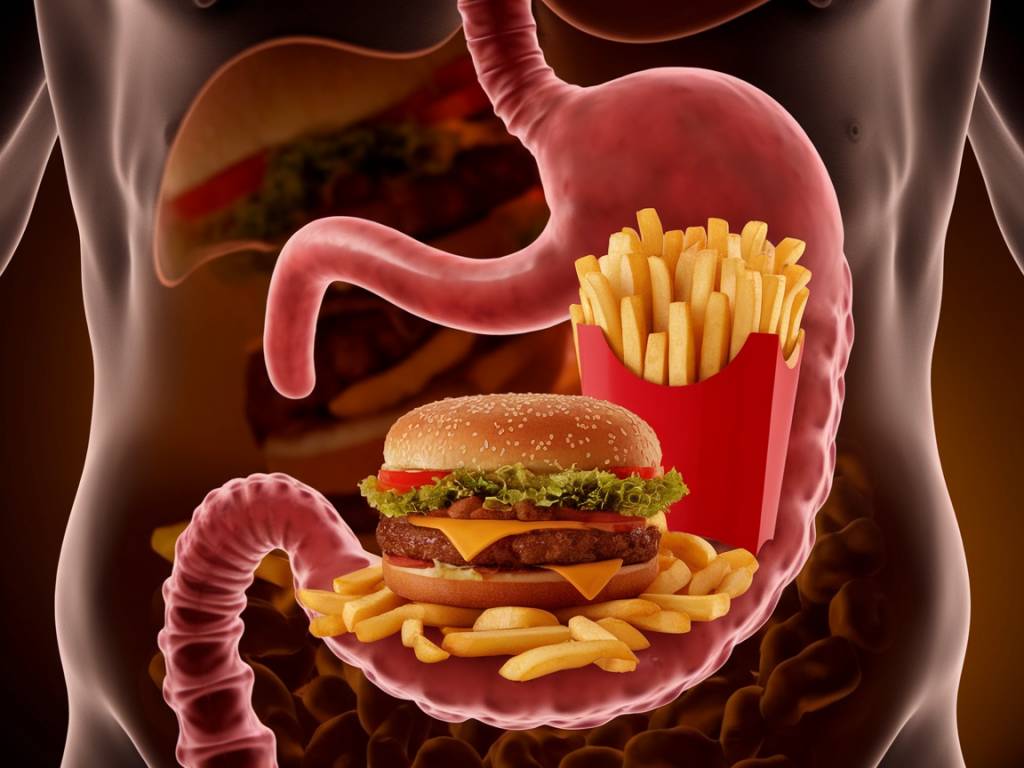The dangers of fast food: what it does to your body over time

The dangers of fast food: what it does to your body over time
The Hidden Dangers of Fast Food: What It Does to Your Body Over Time
Fast food has become synonymous with convenience. Who doesn’t love grabbing a quick burger or some fries when time is short or motivation to cook is low? But behind that tempting combo meal lies a ticking health bomb. Have you ever stopped to think about what’s really happening to your body after years of indulging in fast food? Let’s talk about the not-so-glamorous effects that fast food can have on your health over time.
Fast Food and Its Nutritional Void
One of the biggest issues with fast food is its poor nutritional profile. Sure, it’s designed to taste great, but at what cost? Most fast food meals are loaded with unhealthy fats, refined carbs, added sugars, and excessive sodium. What they lack, however, are the essential nutrients your body actually needs, like vitamins, minerals, and fiber.
Over time, this relentless cycle of eating food with little nutritional value can lead to deficiencies. For example, a lack of dietary fiber can upset your digestive system, leaving you prone to constipation and other gut-related woes. Meanwhile, missing out on key vitamins such as B vitamins and magnesium can drain you of energy and compromise your immune system’s ability to keep illness at bay.
The Long-Term Effects on Your Heart
It’s no secret that diets rich in fast food contribute significantly to heart issues. The combination of trans fats, saturated fats, and high sodium levels creates a perfect storm for your cardiovascular health. These components can lead to higher LDL (« bad ») cholesterol levels and elevated blood pressure, both of which are key risk factors for heart disease.
Imagine this: You’re 30, healthy (or so it seems), and love your daily fast food fix. Fast forward 10 years, and you might find yourself staring at a medical report with terms like “atherosclerosis,” which is the buildup of plaque in your arteries. Scary, right? A steady diet of fast food is one of the culprits behind this silent yet deadly condition.
The Weight Gain Rollercoaster
Fast food is designed to be hyper-palatable, meaning it’s engineered to keep you coming back for more. Think about those crispy fries or that cheesy pizza—it’s hard to say no! But these foods are also calorie-dense, meaning you’re consuming a lot of calories without even realizing it.
Over time, this can lead to slow but steady weight gain. The scary part? Carrying around extra weight—especially in the form of visceral fat—can increase your risk of developing conditions like Type 2 diabetes, heart disease, and even certain types of cancer. And losing that weight isn’t as simple as giving up the fries. Long-term fast food consumption can wreak havoc on your metabolism, making weight loss an uphill battle.
Fast Food and Blood Sugar Spikes
Most fast food items contain refined carbs and added sugars that get absorbed into your bloodstream rapidly. This causes blood sugar spikes, which may leave you feeling energized momentarily but eventually lead to a crash. And this pattern doesn’t just mess with your energy levels—it can lead to insulin resistance over time.
Insulin resistance is a precursor to Type 2 diabetes, a condition that already affects millions of people worldwide. If you’ve ever felt lethargic or irritable after a fast food meal, that’s your body’s way of saying, “Slow down!” Unfortunately, the more you ignore these signs, the more damage gets done to your blood sugar regulation system.
The Impact on Your Mental Health
Did you know that what you eat affects not only your physical health but also your mental well-being? Studies have shown that diets high in processed and fast foods are linked to increased rates of depression and anxiety. While the occasional burger won’t hurt your mental health, a diet dominated by fast food may throw your brain chemistry off balance.
One possible explanation is the lack of essential nutrients in fast food. For instance, omega-3 fatty acids, often found in fish, are critical for brain function but are glaringly missing in greasy fast food meals. Additionally, frequent blood sugar spikes and crashes can exacerbate mood swings, leaving you feeling more tired and irritable.
What About Your Skin?
If you’ve ever noticed a breakout the day after binging on fast food, you’re not imagining things. High-fat, high-sugar diets can contribute to inflammation in the body, including your skin. Over time, this could lead to chronic skin issues like acne or even premature signs of aging.
Fast food is also notorious for its salt content. Excess salt can cause water retention, leaving you puffy and bloated—not exactly the look most of us are going for! And let’s be honest, no one wants their diet to be the reason they’re battling both wrinkles and acne.
Breaking the Cycle
By now, you might be wondering, “Is it too late to make a change?” The good news is that it’s never too late! Start by making small, sustainable swaps in your diet. Instead of grabbing a burger, try a homemade wrap loaded with fresh veggies and lean protein. If you’re craving something salty, opt for air-popped popcorn instead of fries. Small changes like these can make a huge difference over time.
Also, consider meal prepping as a way to avoid the lure of the drive-thru. When you prepare your meals ahead of time, you’re less likely to find yourself hungry and resorting to fast food out of convenience. With just a little effort, you can make wholesome, delicious meals that nourish your body and keep you feeling great.
Learning to Treat Fast Food as an Occasional Indulgence
Don’t get me wrong, no one is saying you have to give up fast food entirely. Life is about balance, and sometimes a cheeseburger or a slice of pizza can be part of that balance. The key is moderation.
Think of fast food as an occasional treat, not a staple in your diet. Enjoy it mindfully and savor the taste, but make sure your daily nutrition comes from whole, nutrient-dense foods. Remember, your body will thank you for treating it like the powerhouse it is.
So the next time you find yourself tempted by that glowing fast food sign, ask yourself: is it worth the long-term cost? Making healthier choices today can set you up for a healthier, happier future. And that’s a trade-off we can all get behind, right?






